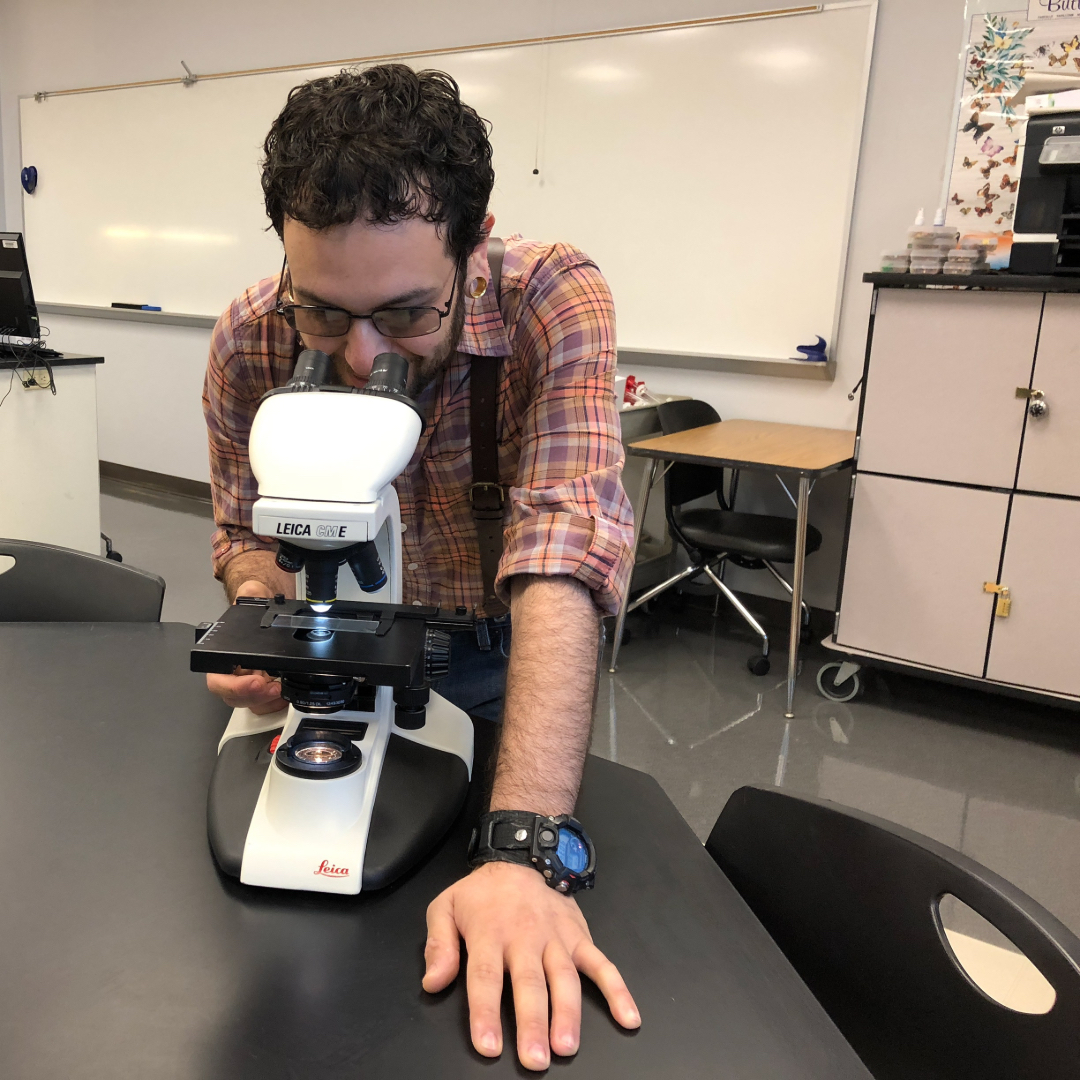My GTCC Story: Matthew Lomas
Published on: August 16, 2018

How One Diagnosis Changed Everything
Matthew Lomas is a biology major with plans to transfer to North Carolina State University to earn a bachelor of science degree and pursue veterinary medicine. In addition to his studies, he
Matthew grew up in the San Francisco Bay area where he lived with his single mother. Throughout his childhood and adolescence, he remembers struggling immensely in school – both socially and academically – and barely getting by.
“My first 12 years of school were awful,” he shares. “I didn’t really understand what was going on around me, and I was always a step behind.”
His high school graduation coincided with Sept. 11, which inspired him, like so many others, to enlist in the military. Higher education took a backseat as Matthew set off to serve his country.
“I joined the Navy when I was 17, and I was there for four years,” he remembers. “I served on the U.S.S. Abraham Lincoln and was stationed in the Pacific fleet.”
Following his years in the Navy, Matthew faced service-connected disabilities and soon began going to the VA hospital for treatment. Originally attending one-on-one and group sessions to cope with Post Traumatic Stress Disorder and the adjustment back to civilian life, an unforeseen diagnosis during a routine appointment changed everything.
“During one of my appointments, my doctor made the observation that he thought I might be autistic, which led to further tests, scans and examinations at one of the larger VA hospitals, and that’s how I got my diagnosis at 25,” he shares. “I started learning more about it, talked to my mom and things started making sense to us both. We finally had a name for what was always just a little bit off.”
This diagnosis was profound for Matthew in more ways than one. Beyond the clarity and closure of putting a name to what he had been feeling for all those years, he was also able to tackle the diagnosis head-on and pinpoint what strategies best suited his learning style.
“The beginning of my education was not at all like it is now, and it’s mostly because now I know how to succeed,” he says. “Once I was diagnosed, I could identify my deficits, and by way of that I could also identify my strengths and really excel.”
Developing new study habits and utilizing his strengths meant Matthew was able to perform well in his courses and continue to work toward his lifelong dream of becoming a veterinarian. His love of animals is steadfast, and he remembers finding solace in four-legged friends during turbulent times.
“Growing up, I didn’t have many friends, and there were no afterschool programs for autistic kids,” he jokes. “So, I was usually around my family’s cats, and I think that’s what I attached to as a child. I’ve always had an affection for them, a kind of empathy that was innate, and I decided to become a veterinarian when I was five. To be honest, I couldn’t do anything about it – I never had a chance to be anything else!”
His future days will be spent with animals of all shapes and sizes, but in the meantime, Matthew has found community and support at GTCC. It’s the result of conscious efforts to make the campus a diverse, accessible environment where all students can thrive.
“The faculty, administration, and my peers at GTCC showed me their difference; difference through defiance to be defined by their diagnosis,” he shares. “Many served in the military and are veterans like me, others are civilians with disabilities comparable to anything suffered in combat. As such, their understanding is personal, not pitiful. Their respect is genuine, not protocol. Reintegration into civilian society is a lifelong event, but the people at GTCC treat me as though I never left.”
Back to All Articles
